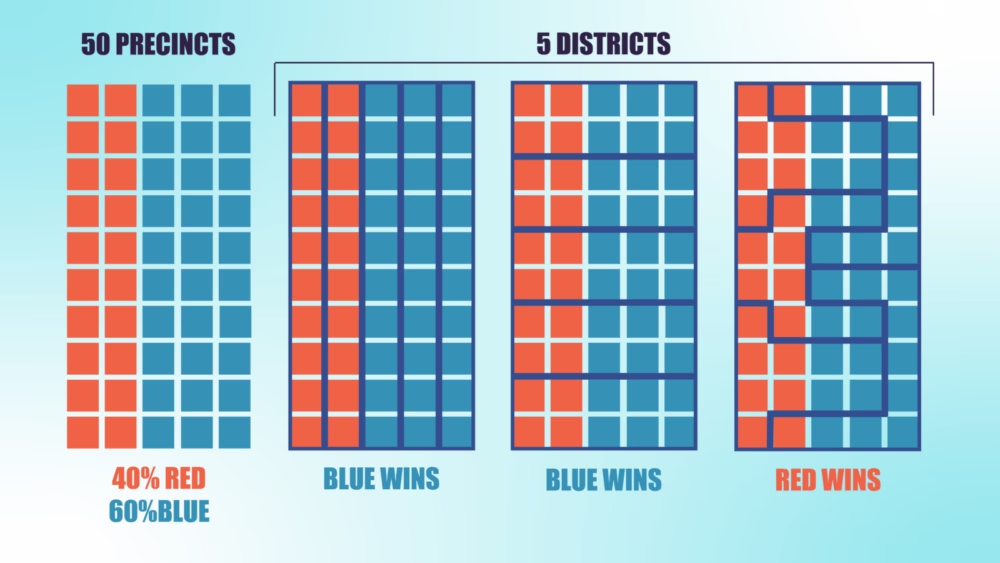“Gerrymander” is a swear word in American politics, with just 5% of Americans supporting the practice. But redistricting following the census results has it on everyone’s minds again, with some prominent Democrats raising the alarm that Republican state legislatures might use it to skew the map in their favor.
Last week, former Attorney General Eric Holder wrote that “The consequences of gerrymandering cannot be overstated—it takes away the will of the voters and locks politicians into a decade of power… It’s a threat to our democracy.” On July 30th, Senator Elizabeth Warren echoed a similar sentiment, writing that “We must ban partisan gerrymandering once and for all so both parties can compete on a level playing field—not in a rigged game that suppresses the will of the people.”
The message is fairly straightforward: gerrymandering undermines democracy, and if it were done away with, then there would be “a level playing field.”
But is that actually true?
Two political scientists, Jowei Chen and Jonathan Rodden, tried to get to the bottom of that, and looked for a perfect test case. They focused on Florida in 2000, a state notoriously separated by a 0.009% margin in presidential vote totals between the Democrats and Republicans. They developed a computer program that would randomly group precincts into 25 districts (the number of Floridian House members at the time) which were contiguous and held a roughly equal number of people in each one. Given that Democrats and Republicans divided the state almost perfectly in vote totals, their goal was to find a map which reflected that in legislative districts. The result? The simulation created districts that, on average, led to Republicans winning 61% of the seats. Even the least biased map gave Republicans 56% of the districts. So what went wrong?
In short, geography. Democrats tend to live in cities near other Democrats, and Republicans tend to live in suburban and rural communities that are more politically diverse. Where the average Democratic district is won in a landslide, Republican districts tend to be more competitive, even if they consistently produce Republican representatives. In Florida, while “Bush received over 80% of the vote in only 80 precincts, Gore received over 80% in almost 800 precincts.” Democrats waste votes compared to the more strategically––and entirely unintentionally––located Republican voters.
It’s not just Florida, either. Chen and Rodden replicated their results in the other states, and found the advantage for Republicans was more than 5% of legislative seats in about half of the states they were able to run simulations for. Some states with particularly unfavorable maps for Democrats, like Georgia, continued to have Republican-advantaged outcomes even when they attempted “an aggressive pro-Democratic gerrymander.” Geography hurts Democrats, and nothing short of abandoning single-member districts is going to change that.
Gerrymandering is a real and dangerous phenomenon. It allows the party in control to gain extra seats, while also making elections less competitive. As one saying goes, rather than allowing voters to pick their representatives, it allows representatives to pick their voters. That being said, Democrats should be careful not to paint redistricting reform as a silver bullet. The unfortunate reality for Democrats is that a map which advantages the Republican party by multiple seats might not be gerrymandered, and a best-case scenario for Democrats nationally isn’t a perfectly equitable one. Instead, Americans should unite around depoliticizing redistricting. A majority of Republicans support independent redistricting commissions, and such reform would undoubtedly benefit our democracy.
So can we solve gerrymandering? Absolutely, but we need to remember that renewing democracy is hard; there are no quick fixes or simple solutions. For those of us in the fight to renew democracy, we need to face facts about how complicated our challenges are before we can hope to solve them.






